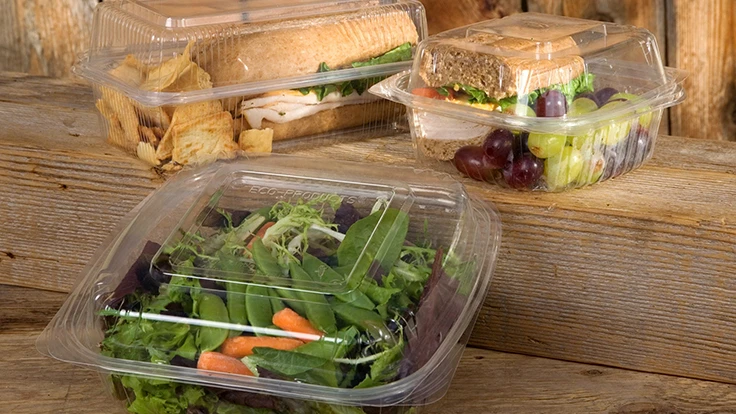
 Eco-Products Inc., Boulder, Colorado, is partnering with the National Aquarium in Baltimore on a new effort to turn guests' trash into soil rather than ending up in area landfills.
Eco-Products Inc., Boulder, Colorado, is partnering with the National Aquarium in Baltimore on a new effort to turn guests' trash into soil rather than ending up in area landfills.Eco-Products is supplying compostable cups, plates, lids, utensils, containers and trays to the Aquarium's food service locations. The utensils will now replace all conventional disposable foodware plastic products with reusable, compostable or more sustainable options.
"This change is at the heart of our conservation mission, eliminating sources of pollution both for ecosystem and human health, and inspiring our guests to do the same, even after their visit," Kris Hoellen, chief conservation officer at the National Aquarium, says. "Utilizing innovative Eco-Products items promotes an essential life cycle approach to materials, whereby what once went in a landfill is now helping our trees and plants grow."
All plates, utensils and trays can go into the same bin for compostables, along with any leftover food.
"It's hard to get guests to first scrape the cheese off a plastic plate – and then toss the cheese into one bin to be composted and the plate into another," Sarah Martinez, director of marketing at Eco-Products, says. "This makes it as easy as possible to divert materials from landfills. Guests can throw their plate, cup and any leftover food into the same bin."
The cups, plates, containers and lids from the Aquarium will be turned into soil and mulch for area farms, gardens and Waterfront Park surrounding the Aquarium.
The compostable cups, plates, utensils and trays from the Aquarium will be combined with other organic waste at Recycled Green Industries, a commercial composting facility in Woodbine, Maryland, owned by Harvest Power, Waltham, Massachusetts. A portion of the resulting soil from this process will return to the Inner Harbor to be used in planters on campus.
"The benefits of this effort extend way beyond the National Aquarium," Martinez says. "It's a wonderful example of how used items don't need to become waste. They can have another life."
The new effort culminates a multiyear effort to reduce the use of conventional disposable plastics across the Aquarium's operations. Working closely with on-site partners Sodexo, Gaithersburg, Maryland; the Classic Catering People, Owing Mills, Maryland; Pepsi, Purcahse, New York, the Aquarium had already eliminated all disposable water bottles, ended the use of plastic bags in the gift shops and eliminated single-use plastics at catering events.
"There's no better opportunity to reach people than when they're relaxing for a meal at a place as inspiring as the National Aquarium," Martinez says. "They're looking at a cup or plate and realizing that it doesn't have to go to a landfill. That's a wonderful feeling to be part of the solution."
Get curated news on YOUR industry.
Enter your email to receive our newsletters.Loading...
Latest from Waste Today
- US Senate backs reduced cuts to EPA
- Waste Connections announces Q2 results
- Returnity and Cosmoprof to address reusable bag waste
- SWANA releases report on aging WTE facilities
- New economic assessment reveals cost benefits of California’s SB 54
- Premier Truck Sales & Rental opens new facility
- TeknTrash Robotics, Sharp Group partner on humanoid robot pilot
- Stadler equips mixed waste sorting plant in Sweden





